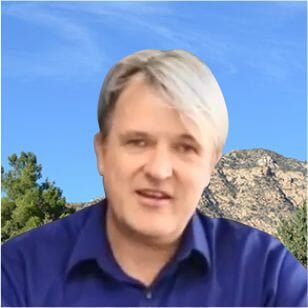1. Sheffler ZM, Reddy V, Pillarisetty LS. Physiology, Neurotransmitters. [Updated 2021 May 9]. In: StatPearls [Internet]. Treasure Island (FL): StatPearls Publishing; 2021 Jan-. Available from: https://www.ncbi.nlm.nih.gov/books/NBK539894/ [cited 2021 July 6]
2. Sulzer D. How addictive drugs disrupt presynaptic dopamine neurotransmission. Neuron. 2011 Feb 24;69(4):628-49. doi: 10.1016/j.neuron.2011.02.010. PMID: 21338876; PMCID: PMC3065181. [cited 2021 July 6]
3. Owen L, Corfe B. The role of diet and nutrition on mental health and wellbeing. Proc Nutr Soc. 2017 Nov;76(4):425-426. doi: 10.1017/S0029665117001057. Epub 2017 Jul 14. PMID: 28707609.[cited 2021 July 6]
4. Marx W, Moseley G, Berk M, Jacka F. Nutritional psychiatry: the present state of the evidence. Proc Nutr Soc. 2017 Nov;76(4):427-436. doi: 10.1017/S0029665117002026. Epub 2017 Sep 25. PMID: 28942748.[cited 2021 July 6]
5. Matsuoka Y, Hamazaki K. [Considering Mental Health from the Viewpoint of Diet: The Role and Possibilities of Nutritional Psychiatry]. Seishin Shinkeigaku Zasshi. 2016;118(12):880-894. Japanese. PMID: 30620820.[cited 2021 July 6]
6. Patrick R, Ames B, “Vitamin D hormone regulates serotonin synthesis Part 1“,2014 Feb 20 [online] FASEB Journal [cited 2021 July 6]
7. Chen Y, Liu L. Modern methods for delivery of drugs across the blood-brain barrier. Adv Drug Deliv Rev. 2012 May 15;64(7):640-65. doi: 10.1016/j.addr.2011.11.010. Epub 2011 Nov 28. PMID: 22154620.[cited 2021 July 6]
8. NIH authors, “Amitriptyline Improves Drug Delivery across the Blood-Brain Barrier,” ND [online] [cited 2021 July 6]
9. University of Michigan Health System. (2006, October 19). Pleasure And Pain: Study Shows Brain’s ‘Pleasure Chemical’ Is Involved In Response To Pain Too. ScienceDaily. Retrieved July 6, 2021 from www.sciencedaily.com/releases/2006/10/061019094148.htm [cited 2021 July 6]
10. Purves D, Augustine GJ, Fitzpatrick D, et al., editors. Neuroscience. 2nd edition. Sunderland (MA): Sinauer Associates; 2001. Chapter 6, Neurotransmitters. Available from: https://www.ncbi.nlm.nih.gov/books/NBK10795/ [cited 2021 July 6]
11. Sheffler ZM, Reddy V, Pillarisetty LS. Physiology, Neurotransmitters. [Updated 2021 May 9]. In: StatPearls [Internet]. Treasure Island (FL): StatPearls Publishing; 2021 Jan-. [cited 2021 July 6]
12. Dfarhud D, Malmir M, Khanahmadi M. Happiness & Health: The Biological Factors- Systematic Review Article. Iran J Public Health. 2014;43(11):1468-1477.[cited 2021 July 6]
13. Young SN. How to increase serotonin in the human brain without drugs. J Psychiatry Neurosci. 2007;32(6):394-399. [cited 2021 July 6]
14. Francescangeli J, Karamchandani K, Powell M, Bonavia A. The Serotonin Syndrome: From Molecular Mechanisms to Clinical Practice. Int J Mol Sci. 2019;20(9):2288. Published 2019 May 9. doi:10.3390/ijms20092288 [cited 2021 July 6]
15. Juárez Olguín H, Calderón Guzmán D, Hernández García E, Barragán Mejía G. The Role of Dopamine and Its Dysfunction as a Consequence of Oxidative Stress. Oxid Med Cell Longev. 2016;2016:9730467. doi:10.1155/2016/9730467 [cited 2021 July 6]
16. Gerner RH, Post RM, Bunney WE Jr. A dopaminergic mechanism in mania. Am J Psychiatry. 1976 Oct;133(10):1177-80. doi: 10.1176/ajp.133.10.1177. PMID: 970489. [cited 2021 July 6]
17. de Leon AS, Tadi P. Biochemistry, Gamma-Aminobutyric Acid. [Updated 2021 May 9]. In: StatPearls [Internet]. Treasure Island (FL): StatPearls Publishing; 2021 Jan-. Available from: https://www.ncbi.nlm.nih.gov/books/NBK551683/ [cited 2021 July 6]
18. Prokopová I. Noradrenalin a chování [Noradrenaline and behavior]. Cesk Fysiol. 2010;59(2):51-8. Czech. PMID: 21254660. [cited 2021 July 6]
19. Chen MH, Xie L, Liu TW, Song FQ, He T. Naloxone and epinephrine are equally effective for cardiopulmonary resuscitation in a rat asphyxia model. Acta Anaesthesiol Scand. 2006 Oct;50(9):1125-30. doi: 10.1111/j.1399-6576.2006.01141.x. PMID: 16987343. [cited 2021 July 6]
20. Hansel J, Ármannsson GS. Cardiac arrest due to accidental overdose with norepinephrine dissolved in crystalloid. BMJ Case Rep. 2020 Dec 9;13(12):e237643. doi: 10.1136/bcr-2020-237643. PMID: 33298492; PMCID: PMC7733087. [cited 2021 July 6]
21. Hasselmo ME. The role of acetylcholine in learning and memory. Curr Opin Neurobiol. 2006 Dec;16(6):710-5. doi: 10.1016/j.conb.2006.09.002. Epub 2006 Sep 29. PMID: 17011181; PMCID: PMC2659740. [cited 2021 July 6]
22. Adeyinka A, Kondamudi NP. Cholinergic Crisis. [Updated 2021 Feb 26]. In: StatPearls [Internet]. Treasure Island (FL): StatPearls Publishing; 2021 Jan-. Available from: https://www.ncbi.nlm.nih.gov/books/NBK482433/ [cited 2021 July 6]
23. Licata SC, Renshaw PF. Neurochemistry of drug action: insights from proton magnetic resonance spectroscopic imaging and their relevance to addiction. Ann N Y Acad Sci. 2010;1187:148-171. doi:10.1111/j.1749-6632.2009.05143.x [cited 2021 July 6]
24. Guillot C, Greenway D. Recreational ecstasy use and depression. J Psychopharmacol. 2006 May;20(3):411-6. doi: 10.1177/0269881106063265. PMID: 16574715. [cited 2021 July 6]
25. Nestler EJ. The neurobiology of cocaine addiction. Sci Pract Perspect. 2005;3(1):4-10. doi:10.1151/spp05314 [cited 2021 July 6]
26. Köpetz CE, Lejuez CW, Wiers RW, Kruglanski AW. Motivation and Self-Regulation in Addiction: A Call for Convergence. Perspect Psychol Sci. 2013;8(1):3-24. doi:10.1177/1745691612457575 [cited 2021 July 6]
27. Grant LP, Haughton B, Sachan DS. Nutrition education is positively associated with substance abuse treatment program outcomes. J Am Diet Assoc. 2004 Apr;104(4):604-10. doi: 10. [cited 2021 July 6]
28. Grant LP, Haughton B, Sachan DS. Nutrition education is positively associated with substance abuse treatment program outcomes. J Am Diet Assoc. 2004 Apr;104(4):604-10. doi: 10. [cited 2021 July 6]
29. Priddy SE, Howard MO, Hanley AW, Riquino MR, Friberg-Felsted K, Garland EL. Mindfulness meditation in the treatment of substance use disorders and preventing future relapse: neurocognitive mechanisms and clinical implications. Subst Abuse Rehabil. 2018;9:103-114. Published 2018 Nov 16. doi:10.2147/SAR.S145201 [cited 2021 July 6]








